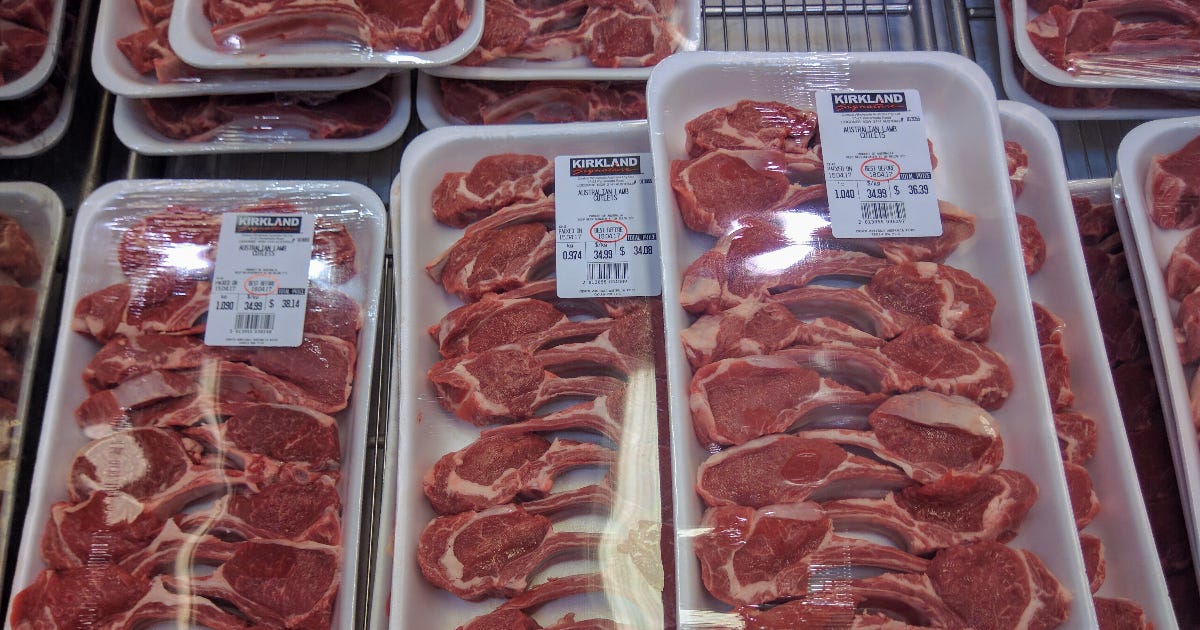OP-ED: Ottawa Wants to Keep Beef Prices High — Deliberately. Here’s How
"Cases like this raise an uncomfortable question: does Ottawa actually want to keep beef prices high?"
Author: Dr. Sylvain Charlebois
We recently received information from a reliable industry source about how the federal government is administering beef import permits. If accurate, it raises serious concerns about whether Ottawa is knowingly sustaining an outdated and opaque system that keeps beef prices unnecessarily high. At a time when many families are struggling with food costs, this is more than a bureaucratic issue—it directly affects affordability.
Canada’s beef import rules operate under a tariff-rate quota system. A limited volume of beef can enter the country at a low tariff, but anything beyond that is slapped with a steep import charge. When supply tightens or when specialty products are required, supplemental import permits are meant to provide flexibility and help stabilize the market. For years, the system worked reasonably well.
But the structure behind the process has not kept pace with today’s realities. The committee originally created to provide guidance—the Beef and Veal Tariff Rate Quota Advisory Committee—has not met since 2015. For a decade, no formal mechanism has existed for importers, retailers, or independent distributors to participate in discussions with government about how permits are allocated. Instead, decisions have shifted informally toward a small group of influential players, including major domestic processors who have a vested interest in limiting imports. The transparency and balance once built into the system have eroded.
Adding to this complexity is the broader concentration of market power in the sector. Beef packing and processing in Canada is dominated by two foreign-owned private companies: Cargill, based in the United States, and JBS, headquartered in Brazil. Together, they control the overwhelming majority of beef slaughter and processing in this country. When a sector is this concentrated, and when a federal system restricts competition through import controls, the beneficiaries are obvious. Any policy that tightens import access—intentionally or not—further entrenches the dominance of these two multinational giants.
The consequences are no longer theoretical. Our source described a case where a long-established importer has beef sitting in bonded storage in Canada. The product is legally imported and properly documented. The importer applied for a supplemental permit to release it into the market at the regular tariff rate. The application was refused. The justification offered—that the beef had been purchased abroad at a price “too low” compared with U.S. prices—makes little economic sense. The product did not come from the U.S., and competitive pricing has never been grounds for rejecting a permit. With no permit, the importer must wait until the next quota year or pay the full over-quota tariff. Ironically, the only reason paying the tariff is even possible now is because beef prices have climbed so sharply. The federal government, of course, collects that tariff revenue.
Cases like this raise an uncomfortable question: does Ottawa actually want to keep beef prices high? If the goal were genuinely affordability, the government could issue supplemental permits when supply conditions justify them. It could restore a functioning advisory committee to ensure balanced input. It could provide clear and transparent criteria for permit decisions. Instead, legitimate requests are rejected, supply is restricted even when product is physically present in the country, and both processors and Ottawa benefit from elevated prices.
It is also notable that the Canadian Meat Council—an organization that represents many of the largest processors and has remained silent on other controversial issues such as cloned meat—is convening a meeting next week specifically on this issue. When an industry group known for avoiding public controversy suddenly mobilizes around beef import policy, it suggests something significant is happening behind the scenes. The fact that the Council is coordinating internally before any government meeting reinforces the perception that influence over Canada’s beef import rules lies primarily with one side of the sector.
Some might argue that Canada does not need more imported beef because we are a major producer. That may be true, but this debate is not about increasing imports for the sake of it. It is about ensuring the system functions fairly. When import decisions are guided by outdated rules, opaque rationale, and concentrated influence, the result is artificial scarcity and higher prices. Consumers feel the impact directly at the meat counter.
This is, at its core, a competition issue. When two foreign-owned processors dominate the market and appear to influence how import permits are administered, the Competition Bureau should take a close look. Beef is not supply-managed, but the current arrangement increasingly resembles supply management in everything but name.
Ottawa owes Canadians answers. Why are supplemental permits being denied on questionable grounds? Why has no advisory committee met in a decade? Why do processors hold so much influence over import access? And why is beef already in the country prevented from reaching consumers at reasonable prices?
If affordability is truly the priority, the federal government needs to prove it. Canadians deserve a system that serves the public interest—not one that quietly keeps prices high.
Sylvain Charlebois is director of the Agri-Food Analytics Lab at Dalhousie University, co-host of The Food Professor Podcast and visiting scholar at McGill University



Are you freaking kidding me???
One step ahead of Ottawa's 100M subvention to crickets companies such Aspire Food International based in Ontario for human consumption.
And why is the gov deciding what we eat ?
You will own nothing.
You will eat bugs.
You will not be able to afford food.
But you will be happy...
Except for the "happy" part.
Read any given WEF document.
Then go ask an arrogant, fraud of a PM who was a WEF Principle about this article.
Watch the body language and the cringe factor escalate.
That is if you can find him for as with his predecessor.
OUT OF THE COUNTRY ...